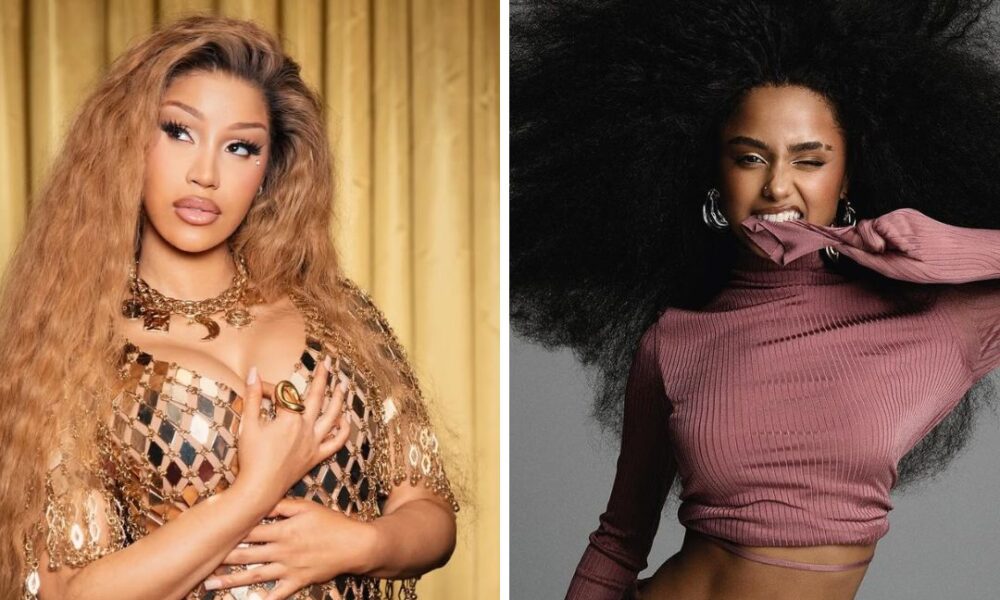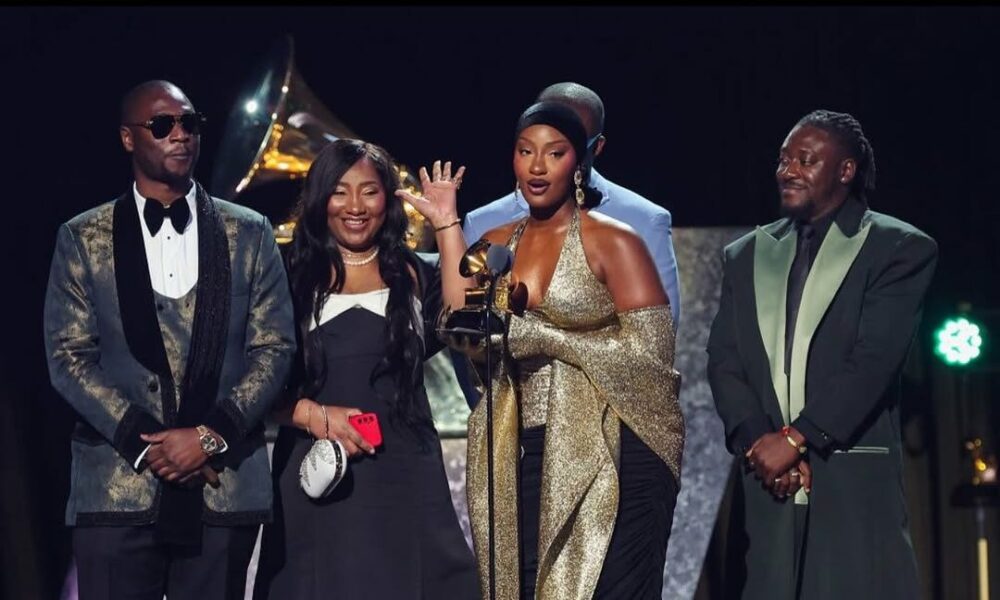From Johannesburg to the Grammys: The Girl Who Globalized Amapiano

A Global Star with African Roots
When Tyla Laura Seethal, a girl from Johannesburg, posted her first bedroom performance online, she didn’t know she was about to change pop music’s rhythm, a few years later, Tyla’s name is everywhere, from Billboard’s Hot 100 to Grammy stages, Vogue covers, and MTV red carpets.
The Rise of a Cultural Export
When Tyla dropped her breakout single “Water”, it wasn’t just another hit , it was an era.
The Amapiano-infused pop track went viral on TikTok, soundtracked millions of videos, and became the first South African song to hit the Billboard Hot 100 in over 50 years (Billboard).
The “Water Challenge” was more than a trend; it was a declaration: Africa doesn’t need to imitate; it innovates. She followed it up with a self-titled debut album that fused R&B, Afrobeats, and house with South African flavor. Every track was both local and limitless: Fashion, Femininity, and Fearlessness. At this year’s MTV Video Music Awards, Tyla made as many headlines for her look as for her music.
Stepping onto the pink carpet in a beige micro-dress, she instantly went viral not for scandal, but for confidence.

Elle Magazine called it “the boldest minimalist moment of the night.”
But Tyla’s style choices aren’t just about aesthetics. They’re statements, In a world where Black women’s bodies are often politicized, she’s reclaiming glamour as agency, proving you can be powerful, sensual, and strategic all at once.
“I don’t want to fit into what the industry expects of African women,I want to redefine it.” Tyla told BBC Africa
Her look is part of a bigger message: that African femininity can be soft, strong, and global all at the same time.
Sound Without Borders
Tyla’s music sits at the intersection of cultures, part Amapiano, part pop, part soul. But what makes it special is how intentionally she represents home. She told Apple Music that she refused to dilute her sound for Western playlists. Instead, she built bridges between Soweto’s bass-heavy grooves and Los Angeles’ pop production.
“Amapiano is ours,” she said.
“It’s African house, born in townships. The world doesn’t get to rename it.”
Through Tyla, we see the shift clearly: Africa isn’t the next big thing. Africa is the thing.
The Weight of a First
Being the first to do anything comes with pressure.
Tyla became the youngest African woman to win a Grammy, taking home Best African Music Performance in 2024. She did it from the perspective of a Gen Z woman, navigating fame through self-awareness and social media transparency.

Digital Fame, Real Roots
Tyla’s rise was digital first.
Her fanbase didn’t wait for approval from major Western platforms. They created virality themselves. From Johannesburg TikTok users to Kenyan dance groups and Ghanaian DJs remixing “Water,” her fame grew, community to community
That’s the new African entertainment model: decentralized, digital, democratic. And Tyla is its perfect symbol.
She engages directly with fans, curates her own image, and treats social media not as pressure, but as power. Her Instagram stories, playful, personal, and perfectly timed, blend artistry with authenticity, making her feel both iconic and relatable.
Amapiano Goes Global
What Tyla did for Amapiano is what Drake did for Toronto: she made it mainstream without making it ordinary.
The genre, born in South African townships, blends jazz, deep house, and percussive rhythm. For years, it lived in underground clubs and informal scenes until artists like Kabza De Small, DJ Maphorisa, and now Tyla took it global.
Today, you’ll hear Amapiano in New York clubs, Paris fashion shows, and TikTok reels in Seoul.
As BBC Music reported, “Amapiano is the heartbeat of modern Africa and Tyla is its pulse.”
She’s not just exporting music; she’s exporting a mood.
The sound of joy. The rhythm of freedom.
Beyond the stage, behind the shimmer and spotlight, lies a sharp strategist, a young woman who understands that art is power and presence is currency.
Tyla isn’t waiting for Western endorsement deals; she’s creating her own.
She’s launched collaborations with Spotify Africa, Beats by Dre, and luxury fashion houses that align with her aesthetic.
Insiders say her management team is mapping out a wellness and fashion brand rooted in African luxury, not imitation, but innovation.
In interviews, Tyla often emphasizes ownership:
“I want to build something that lasts longer than a song.”
That’s the future of African celebrity, not just performance, but participation in the business of culture.
Tyla’s fame says something larger about where Africa is now, not seeking validation, but shaping culture itself.
Tyla’s story is the story of a generation that learned how to dream loudly and rest softly, ambitious, creative, and connected.
She’s part of a youth movement that understands success isn’t about escaping Africa, it’s about expanding it. Her sound echoes a message every young African can relate to, You don’t have to leave home to be heard by the world.
As her career grows, one thing is clear: she’s not chasing global validation; the globe is catching up to her.
The New Face of African Pop
Tyla isn’t just representing South Africa, she’s rewriting the global definition of pop itself.
For decades, global pop stardom meant fitting into a Western mold, singing in a certain accent, following industry formulas, and toning down identity for marketability. But Tyla’s presence disrupts that entire model.
When she performs “Water” in London or Paris, fans chant Zulu lyrics like they’ve known them forever. That’s more than music, that’s a cultural connection.
And yet, Tyla doesn’t present herself as a global ambassador in the traditional sense. She’s not performing Africanness as spectacle; she’s living it as truth.
Her interviews are grounded and her confidence unforced. To her, fame is not the goal but impact.
Behind every viral hit is a strategy. Behind every effortless performance is discipline.
Her work ethic mirrors a generation of Africans balancing creativity and capitalism, turning art into economy, influence into industry.
It’s also a reflection of how South Africa’s creative scene continues to evolve. From Amapiano DJs in Pretoria to fashion stylists in Cape Town, young creatives are redefining export culture proving that “Made in Africa” isn’t a label, it’s a legacy.
When Tyla says she wants to build something that lasts longer than a song, it’s a mission statement.
She’s building an ecosystem, one where music, fashion, wellness, and storytelling coexist under one name, one energy, one movement.
Trend to Legacy
She’s not here for a viral moment; she’s here to create a movement.
The impact of “Water” may fade from the charts, but its cultural echo will linger in the confidence of young African girls watching her videos, seeing their reflection on global screens for the first time.
Because representation isn’t about decoration, it’s about direction.
It tells young creators, “You belong here. You don’t have to shrink to shine.”
She’s the pulse of a new Africa.
The soundtrack of tomorrow.
You may also like...
Super Eagles Fury! Coach Eric Chelle Slammed Over Shocking $130K Salary Demand!
)
Super Eagles head coach Eric Chelle's demands for a $130,000 monthly salary and extensive benefits have ignited a major ...
Premier League Immortal! James Milner Shatters Appearance Record, Klopp Hails Legend!

Football icon James Milner has surpassed Gareth Barry's Premier League appearance record, making his 654th outing at age...
Starfleet Shockwave: Fans Missed Key Detail in 'Deep Space Nine' Icon's 'Starfleet Academy' Return!

Starfleet Academy's latest episode features the long-awaited return of Jake Sisko, honoring his legendary father, Captai...
Rhaenyra's Destiny: 'House of the Dragon' Hints at Shocking Game of Thrones Finale Twist!

The 'House of the Dragon' Season 3 teaser hints at a dark path for Rhaenyra, suggesting she may descend into madness. He...
Amidah Lateef Unveils Shocking Truth About Nigerian University Hostel Crisis!

Many university students are forced to live off-campus due to limited hostel spaces, facing daily commutes, financial bu...
African Development Soars: Eswatini Hails Ethiopia's Ambitious Mega Projects

The Kingdom of Eswatini has lauded Ethiopia's significant strides in large-scale development projects, particularly high...
West African Tensions Mount: Ghana Drags Togo to Arbitration Over Maritime Borders

Ghana has initiated international arbitration under UNCLOS to settle its long-standing maritime boundary dispute with To...
Indian AI Arena Ignites: Sarvam Unleashes Indus AI Chat App in Fierce Market Battle

Sarvam, an Indian AI startup, has launched its Indus chat app, powered by its 105-billion-parameter large language model...





